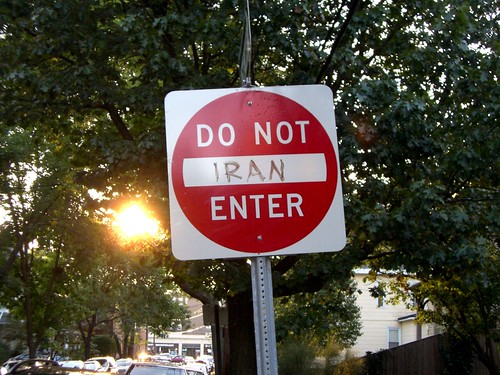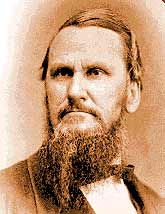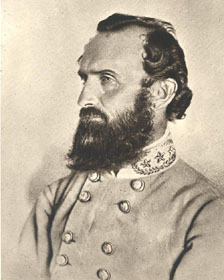To be sure, one of the greatest errors of Catholicism is the overemphasis placed on tradition. The Catholic Church, in fact, places the Magisterium on equal footing with Scripture, giving them equal weight and authority in regards to theology and doctrine. Yet, while one of the greatest truths to (re)emerge from the Reformation was that of sola scriptura, and, without a doubt, the authority afforded tradition by the Catholic Church is certainly errant, it is important that we Protestants do not throw out the baby with the bathwater. Tradition, while not authoritative, is extremely beneficial in our understanding and employment of the revealed Word of God in Scripture.
The Church seems to exist in a vacuum of late. We hold to many doctrines and teachings that not only were not part of the apostolic faith but, rather, are recent inventions offered initially as a way to forestall or placate the progress of the humanist onslaught. The result is a Christian weltanschauung that bears little resemblance to the faith of our fathers and would be hardly recognisable to them.
When confronted, those who are of the more modernist bent, rely on the most contorted of interpretations of Scripture to buttress their arguments. Those of us who hold to the historic faith can point to those same verses in support of our claims as well. An important consideration, I submit, would be to examine how the church has historically viewed the issue at hand--how did our fathers approach the issue?
Athanasius, the Father of Orthodoxy, 'always [based] his conclusions upon Scripture, and [appealed] to the authority of tradition only in proof that he rightly [understood] and [expounded] the sacred books. The catholic faith, [said Athanasius], is that which the Lord gave, the apostles preached, and the fathers have preserved; upon this the church is founded, and he who departs from this faith can no longer be called a Christian.' (Schaff, History of the Christian Church, v. III, Nicene and Post-Nicene Christianity, A.D. 311-600, p. 606, 607). That is an aspect of the faith we have ignored--are we properly divining the Word or have we missed something? How arrogant that we, who have changed the Church so much in the past 50 years, feel as if we have more understanding than those saints who came before us the previous 2,000! The Church would be hardly recognisable to them, yet we glory in our errancy.
I will in future posts be discussing several of the ways in which we have left the faith of our fathers for the pottage of modernity. Certainly, most of us have done so only because that is in fact what we have been taught. I hope to awaken those like me who, once they understand the error, will seek to recapture the historic and apostolic manner of the Christian walk.
Tuesday, February 07, 2006
Friday, January 13, 2006
Brokevow Mountain
No one in the Church, I would put forth, has been surprised by the barrage of positive PR oozing out of Hollywood in support of its latest attempt to unfasten the moral fiber of our society--the homoerotic filth from Ang Lee known as 'Brokeback Mountain.'
Lost in the justified furor by many professing Christians is the heart of the plot of the film. Say what you will about its glorification of a perverse and aberrant lifestyle, I have heard not one voice speak to another (almost more glaring) aspect--the main characters, whilst carrying on their long sodomitic journey, are betraying their wives and families. That's right, queer or not, they are SERIAL ADULTERERS! Has that escaped the notice of most folks?
In my opinion, the pro-homo agenda is enough to keep me as far away from any theatre showing that film as possible; but the manner in which the adultery is accepted (or at best unnoticed) is alarming to me. I am afraid that, if it were a man and a woman involved (wouldn't that be refreshing in and of itself?), the movie would have slipped under the radar and evoked no controversy at all--and that is what is really sad.
The Church will, apparently, tolerate Hollyweird's incessant glorification of lust, fornication, and adultery with nary a peep. (How else do we account for the millions of dollars these films make?)
Lost in the justified furor by many professing Christians is the heart of the plot of the film. Say what you will about its glorification of a perverse and aberrant lifestyle, I have heard not one voice speak to another (almost more glaring) aspect--the main characters, whilst carrying on their long sodomitic journey, are betraying their wives and families. That's right, queer or not, they are SERIAL ADULTERERS! Has that escaped the notice of most folks?
In my opinion, the pro-homo agenda is enough to keep me as far away from any theatre showing that film as possible; but the manner in which the adultery is accepted (or at best unnoticed) is alarming to me. I am afraid that, if it were a man and a woman involved (wouldn't that be refreshing in and of itself?), the movie would have slipped under the radar and evoked no controversy at all--and that is what is really sad.
The Church will, apparently, tolerate Hollyweird's incessant glorification of lust, fornication, and adultery with nary a peep. (How else do we account for the millions of dollars these films make?)
Monday, January 09, 2006
Reconciling the Impossible
As my wife and I continue down the path of Reformed Theology which we first tread two years ago, we are continually confronted with the reality of human finiteness and the need to rest—to completely rest—in our faith.
When one begins to attain a better (yet never complete) understanding of Scripture, he is consistently recognising that God’s Word contains innumerous antinomies, or ideas and concepts (doctrinal positions, etc.) which appear diametrically opposed to one another. Yet, we know that God does not contradict Himself—and He cannot deceive or lie.
One such antinomy that has generated hours of discussion between my bride and me is that of God’s decretive will (which, of course, follows naturally from a candid discussion of predestination). We are told, in the Word, that God is sovereign and that everything that comes to pass has been ordained (decreed) by God beforehand. In fact, all that has existed or ever will exist does so only with the supportive will of God. His will sustains the universe. We are also told that we are responsible for our actions, which certainly includes our sin.
How can this be?
It was while we were discussing this on a drive home through the country that it hit me. It is, at least to our finite intelligence, impossible for God’s decretive will and our free agency (as distinguished from free will) to coexist. In other words, it is impossible. Yet, it is also impossible to walk on water, turn water into wine, give sight to the blind (apart from modern medical procedures), raise the dead, and be resurrected. So, why do we, the faithful, accept the latter impossibilities ascribed to an omnipotent God who can do the impossible, yet, as it pertains to seemingly contradictory concepts, find it difficult to reconcile?
Reconciliation of the antinomian aspects of doctrine and theology is quite simple, actually. If something is impossible, it cannot be done—outside of the miraculous actions of God, who is not constrained by the laws of the universe. There cannot be varying degrees of impossibility. One thing cannot be less impossible than another; to be so, means that it is nearer to being possible. However, it cannot be almost possible without still being…impossible.
Therefore, if we are able to accept the one impossible act (walking on water, resurrection of the dead, etc.), we should be willing to fully accept the other, such as the relationship of God’s decretive will and human free agency/ responsibility. Both are, in human terms, equally impossible and still, in God’s terms, perfectly enacted.
When one begins to attain a better (yet never complete) understanding of Scripture, he is consistently recognising that God’s Word contains innumerous antinomies, or ideas and concepts (doctrinal positions, etc.) which appear diametrically opposed to one another. Yet, we know that God does not contradict Himself—and He cannot deceive or lie.
One such antinomy that has generated hours of discussion between my bride and me is that of God’s decretive will (which, of course, follows naturally from a candid discussion of predestination). We are told, in the Word, that God is sovereign and that everything that comes to pass has been ordained (decreed) by God beforehand. In fact, all that has existed or ever will exist does so only with the supportive will of God. His will sustains the universe. We are also told that we are responsible for our actions, which certainly includes our sin.
How can this be?
It was while we were discussing this on a drive home through the country that it hit me. It is, at least to our finite intelligence, impossible for God’s decretive will and our free agency (as distinguished from free will) to coexist. In other words, it is impossible. Yet, it is also impossible to walk on water, turn water into wine, give sight to the blind (apart from modern medical procedures), raise the dead, and be resurrected. So, why do we, the faithful, accept the latter impossibilities ascribed to an omnipotent God who can do the impossible, yet, as it pertains to seemingly contradictory concepts, find it difficult to reconcile?
Reconciliation of the antinomian aspects of doctrine and theology is quite simple, actually. If something is impossible, it cannot be done—outside of the miraculous actions of God, who is not constrained by the laws of the universe. There cannot be varying degrees of impossibility. One thing cannot be less impossible than another; to be so, means that it is nearer to being possible. However, it cannot be almost possible without still being…impossible.
Therefore, if we are able to accept the one impossible act (walking on water, resurrection of the dead, etc.), we should be willing to fully accept the other, such as the relationship of God’s decretive will and human free agency/ responsibility. Both are, in human terms, equally impossible and still, in God’s terms, perfectly enacted.
Subscribe to:
Comments (Atom)





